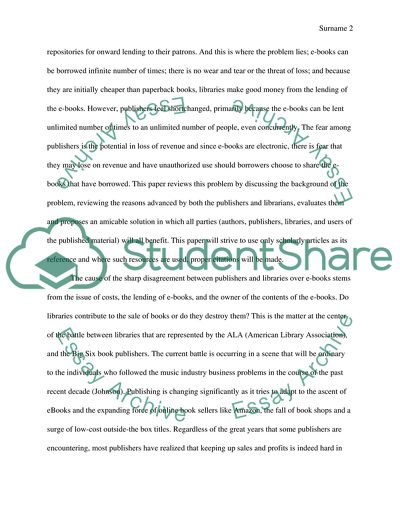Cite this document
(“The War between Publishers and Libraries over E- Books Essay”, n.d.)
The War between Publishers and Libraries over E- Books Essay. Retrieved from https://studentshare.org/literature/1680857-complete-research-paper-drafts
The War between Publishers and Libraries over E- Books Essay. Retrieved from https://studentshare.org/literature/1680857-complete-research-paper-drafts
(The War Between Publishers and Libraries over E- Books Essay)
The War Between Publishers and Libraries over E- Books Essay. https://studentshare.org/literature/1680857-complete-research-paper-drafts.
The War Between Publishers and Libraries over E- Books Essay. https://studentshare.org/literature/1680857-complete-research-paper-drafts.
“The War Between Publishers and Libraries over E- Books Essay”, n.d. https://studentshare.org/literature/1680857-complete-research-paper-drafts.


